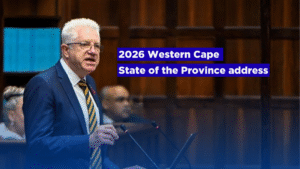The DA is calling on the Minister of Public Enterprises, Pravin Gordhan, to update the nation on whether Eskom has adequate engineering and technical expertise at its disposal to deal with the high rates of coal power stations that have been taken offline, either due to breakdowns or for maintenance.
Eskom’s latest system update shows that about 50% (19 333MW) of the utility’s 37 698MW coal generation capacity is offline due to breakdowns, while 4 524MW is out for planned maintenance. It is highly questionable that Eskom’s rapid response teams have the requisite human resources to attend to this huge expanse of capacity that has broken down.
With the coming winter months and the anticipated increase in electricity demand, notwithstanding the fact that Eskom is already averaging stage 6 load-shedding every week, the utility must keep breakdowns as low as possible. That will not be possible if the engineering teams tasked with attending to these breakdowns are stretched to their limit.
In terms of quality and capability of those who effect maintenance – in each of Eskom’s power plants, tripping is a perennial problem – a problem rooted in reliability maintenance. To deal with these, the operating envelopes which include factors such as the maximum and minimum levels of power output, temperature, pressure, fuel consumption, and other operating parameters need to be reset, but the problem is that maintenance is outsourced to often-crooked cadres who don’t know a spanner from a wrench.
To this end, Gordhan should give an update on the online skills crowdsourcing platform that he launched in 2022 to enable people with the required expertise to submit their details online to help address the utility’s severe skill shortage. In the last update given in November 2022, from the 238 individuals who had responded to the call for expertise, only 25 were chosen for the first phase of the crowdsourcing intake.
When one factors in the challenges that Eskom is having at technical and engineering level, the addition of just 25 individuals to Eskom’s technical division is simply inadequate. It has been reported that part of the reason why Eskom cannot hire as many retired engineers as it should, is because it has to comply with affirmative action requirements.
With the South African economy teetering on the brink of collapse due to load-shedding, it is simply reckless for the ANC government to prioritise regressive empowerment policies at the expense of onboarding all the help that Eskom can get. In the short term, if no practical action is taken to reduce the incidence of coal power station breakdowns, the grim reality is that South Africa may face the real prospects of elevated stages of load-shedding, with dire consequences for the economy.




